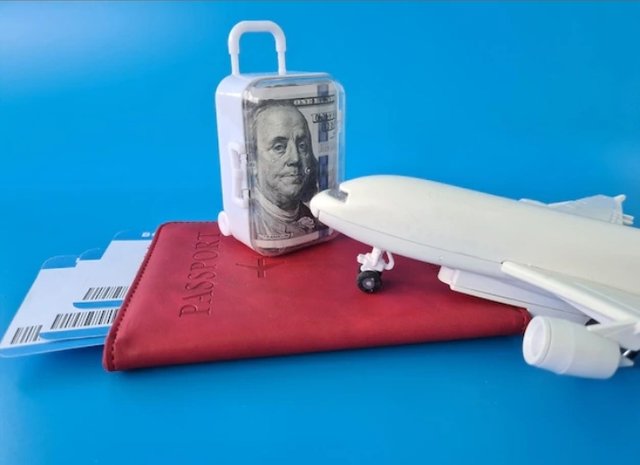Steem: The Ultimate Escape from Government Control?

Imagine boarding a flight with your hard-earned savings, only to be arrested because you dared to carry cash. That’s exactly what happened to an Austrian national at Heathrow Airport. He was stopped while trying to fly to Turkey with £400,000 in a suitcase, and now he faces money laundering charges. But here’s the real question: is it a crime to move your own money?
In today’s world, governments and financial institutions have near-total control over how you store and move your wealth. Large cash transactions are flagged, bank transfers are monitored, and withdrawing “too much” can even result in frozen accounts. This is where Bitcoin and other cryptocurrencies like #STEEM offer a powerful alternative.
Freedom from Government Restrictions
Unlike traditional money, Bitcoin operates on a decentralized blockchain, meaning no single authority can control or seize it. Had this traveler stored his wealth in Bitcoin, he could have accessed his funds anywhere in the world with nothing more than a private key. No need to carry suitcases full of cash. No risk of government intervention.Peer-to-Peer Transactions
Bitcoin and #STEEM allow users to send money directly to one another without banks or middlemen slowing things down, charging fees, or placing limits on transactions. Whether you need to send money to a family member abroad or pay for services internationally, cryptocurrency enables instant, borderless payments.Protection Against Confiscation
Governments can freeze bank accounts, seize assets, and restrict access to financial systems. Cryptocurrency, however, is stored on a global network that no government can shut down. With your private keys in hand, your wealth is untouchable.A Hedge Against Inflation and Banking Failures
While traditional currencies lose value due to inflation, Bitcoin has a fixed supply of 21 million coins, making it a deflationary asset. Countries with unstable economies have seen citizens flock to Bitcoin to protect their savings—just look at Venezuela and Argentina.

The Heathrow case is just one example of how governments restrict financial autonomy. If more people wake up to the benefits of cryptocurrency, we could see a shift away from state-controlled money and toward a system where individuals truly own their wealth.
Would you rather trust your money to banks and governments—or secure it on the blockchain, where it belongs to you alone?
